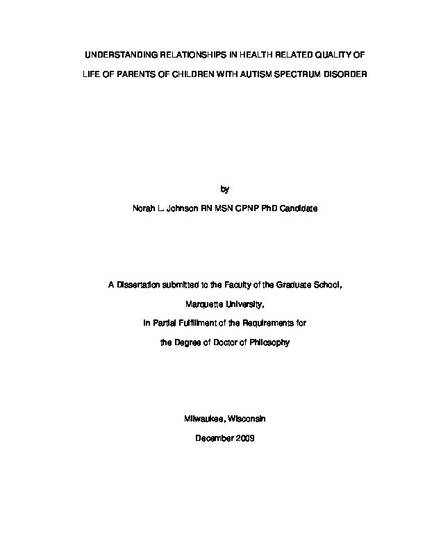
Nurses encounter many parents of children with autism spectrum disorder (ASD). Both parents are under stress that ultimately impacts their health related quality of life (HRQL). Few studies assess the mediators of parenting stress on HRQL for both parents. This study explored the relationship of parenting stress, family functioning and HRQL for parenting dyads of children with ASD. Lazarus and Folkman's (1984) Transactional Model of Stress and Coping and Lakey and Cohen's (2000) Social Support Theory framed the study.
Implementing a cross sectional, descriptive design, 387 parents (n=64 dyads) of ASD-affected children, from 46 states, completed web-based surveys. Demographics, the Feetham Family Functioning Survey (FFFS), Parenting Stress Scale: Autism (PSS:A), and the Rand 36 HRQL measure were collected. The FFFS discrepancy score (D), quantified differences between expectation and reality. The Rand 36 has a mental (MCS) and a physical (PCS) component scale. A non-parametric Wilcoxon test was used to compare fathers and mothers. Pearson correlation and linear regression were used to analyze relationships.
Females' family functioning discrepancy scores between `what is' and `should be' family functioning were significantly wider than males, p=.002. The MCS of both parents and the PCS of female parents were negatively related to the stress variables and D scores. For females, higher care-giving stress was related to lower female PCS (p<.001), accounting for 22 % of variance in a regression. For females' MCS, a higher D score predicted lower MCS (p=.001), accounting for 21% of the variance. For males, personal and family life stress (p<.001) and the D score (p<.001) were significant in the regression, with the D score accounting for 34% of the variance. Findings extend nursing knowledge about the mediating role of family functioning on HRQL. Interventions focused on expectations about family functioning are indicated.
Available at: http://works.bepress.com/norah_johnson/8/